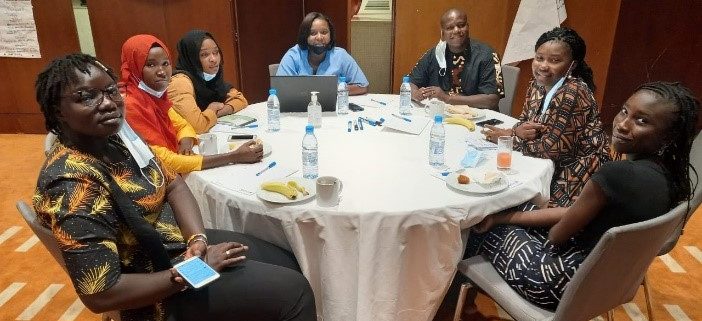Gender Responsive Planning (Grsp) Workshop in Dakar, Senegal, September 27-30, 2021 – Forum for African Women Educationalists: FAWE
The Forum for African Women Educationalists (FAWE) in collaboration with the African Network Campaign on Education for All (ANCEFA) organized a training workshop on Gender Responsive Planning (GRESP) for civil society actors working in the field of education and gender. Participants from 14 different countries, including representatives of civil society organizations and other partner organizations, met in a 4-day workshop held in Dakar, Senegal.
“This workshop is an opportunity to build the capacity of local civil society actors to promote and foster better integration of gender in education sector planning and to integrate advocacy actions into their organizational strategies,” explained Ms. Houraye Anne, FAWE’s Regional Office Coordinator for West and Central Africa, and facilitator of the GRESP workshop.
GRESP is a collaboration between FAWE, ANCEFA, UNGEI, UNICEF and Global Participation for Education (GPE), established in 2018 with the aim of building the capacity of education policymakers and stakeholders in several African countries to better integrate gender-responsive analyses and strategies into their sector planning and program implementation.
This GRESP workshop is the first of its kind exclusively dedicated to civil society. It brought together actors from Francophone countries in West and Central Africa for a training of participants, different from the initial GRESP training of trainers format.
In preparation for the GRESP workshop, a pre-workshop was held the day before, on September 26, 2021, for youth representatives from the region. Robert Badji, youth mentor for the GRESP workshop, reminded participants of the importance of inviting young people to this meeting: “There is no better voice than the voice of youth to carry the cause of youth.
The workshop was extended over two days (September 31 and October 1, 2021) for the benefit of participants from the Equality First Initiative (GCI) implementing countries. These additional sessions reinforced some of the strategic aspects of the training and provided a link between GRESP and GCI.
Thomas Poirier, Senior Education Policy Analyst at the International Institute for Educational Planning (IIEP-UNESCO) said, “In Africa, girls represent a significant proportion of out-of-school children. Having strategies related to gender parity can help bridge this gap. It is therefore important to have data on girls’ enrollment and frameworks for monitoring education sector plans that allow for the measurement of gender dimensions.
The workshop was structured around several participatory and interactive sessions consisting of thematic presentations, group work by cohort and group work by delegation.
Participants were introduced to:
- – the regional situation of gender equality
- – Gender terminology
- – Gender analysis
- – Gender-responsive budgeting
- – Gender-sensitive monitoring and evaluation
- – Strategies, tactics and alliances
- In addition, they were provided with tools such as
- – the why chain
- – The “Gender at work” analysis matrix
- – The GRESP guide
This knowledge and tools enabled participants to work on their country’s Education Sector Plan (ESP) to assess gender sensitivity. Based on their respective organizations, they developed an action plan for better integration of gender in the ESP.




Leave a Reply
Want to join the discussion?Feel free to contribute!